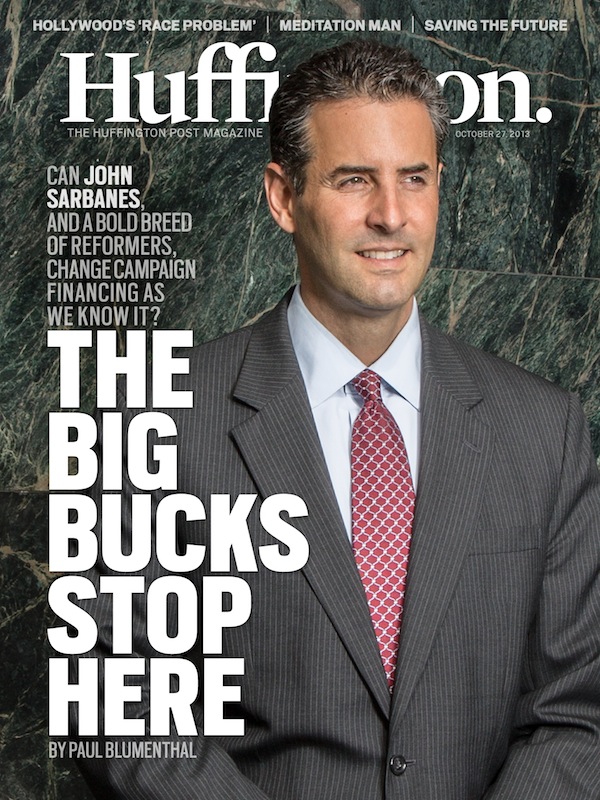In this week's issue, Paul Blumenthal spotlights a bold group of thinkers who have made it their mission to transform campaign finance as we know it.
Paul speaks to Rep. John Sarbanes (D-Md.), who has already begun campaigning for the 2014 election through nontraditional means. In an era where we speak of candidates' "war chests," and where donors can contribute up to $2,600 to one candidate for each primary election and again during the general election, Sarbanes' pitch that "$5 is enough" is an effort to reject our broken status quo, where a candidates' ability to outspend his or her opponent far outweighs the more substantive aspects of a campaign.
"I just woke up one day and said, 'I just can't keep doing this the same old way,'" Sarbanes tells Paul. "I can't keep going to the same donors with the same story. There's got to be something more innovative here."
As it is, members of Congress devote huge chunks of their time to courting potential donors -- through phone calls, meetings, any way to hit their maximum contribution mark. It's a process that has nothing to do with the actual task of governing. Sen. Chris Murphy (D-Conn.) describes it as "soul-crushing." And recent political science research has found that Congress is far more responsive to the concerns of the wealthy, as opposed to those of lower-income Americans.
The good news is that a broad coalition -- including the Sierra Club, the NAACP, Greenpeace and the Communications Workers of America -- agrees that the way we finance our elections isn't working. Alongside the failings of our current campaign finance system, Paul looks into the ways these groups have begun investing time and resources to reform the process so that small donors have more of a voice in the political process.
Elsewhere in the issue, Kia Makarechi points out a troubling trend among the potential Academy Award candidates this year. While a handful of black actors are getting Oscar-worthy buzz for their performances, Kia notes that they all starred in roles that had to be played by black actors, from Chiwetel Ejiofor in 12 Years a Slave to Idris Elba in Mandela. Digging back through Oscar history, he finds that this problem has been around for a while.
"The only black man to win best actor for a role that could have been played by a white actor is Denzel Washington," Kia writes, "who won in 2001 for his turn as a LAPD detective in Training Day."
In our Voices section, Oxford professor Ian Goldin writes about the problem of short-term goals within corporations, which often have leaders who succumb to the pressures of today and neglect the responsibilities of tomorrow. Ian emphasizes the need for long-term thinking if we are to secure a sustainable future.
"The danger of leaving a damaging legacy is real," he writes.
Finally, as part of our continuing focus on the Third Metric, Ann Brenoff talks to transcendental meditation teacher-to-the-stars Bob Roth.

This story appears in Issue 72 of our weekly iPad magazine, Huffington, available Friday, Oct. 25 in the iTunes App store.
